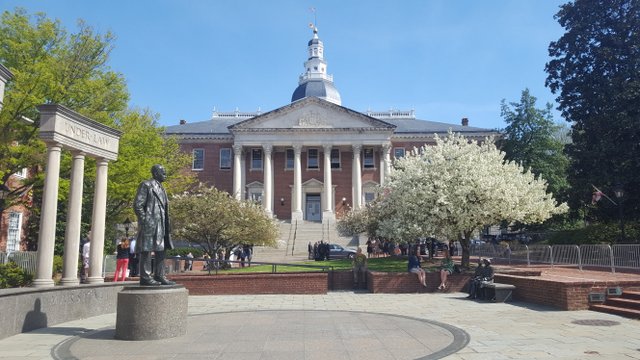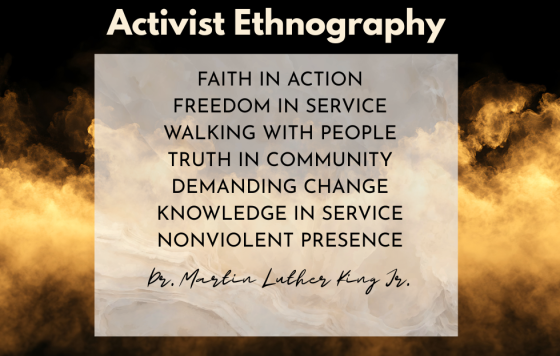
Today is the last day of Maryland’s 2024 legislative session. As Delegates and Senators work until midnight to wrap up their business, our Clean Water priorities have all been resolved.
Governor Moore and the leadership of the House and Senate failed to act on climate change and environmental justice this year. Across the environmental movement, advocates are frustrated by what hasn’t passed and appalled by what has. Stay tuned for more as we work with our partners over the coming weeks and months to hold the administration and leadership accountable and lay the groundwork for better outcomes in 2025.
In the meantime, here’s how the priorities we began the legislative session with fared:
✅ Transparency near Superfund Sites: The Superfund program’s National Priorities List identifies the most hazardous contaminated sites in the country identified for long-term study and remediation. Contamination from these sites can travel through the air, water, soil, and groundwater to nearby land, threatening neighbors’ health. Preventative measures, like specific home maintenance, equipment, and changed behaviors, can reduce that risk – but only if neighbors know they need to do it. Up until now, when someone is buying a home near a Superfund site, that proximity isn't disclosed to them in the same way that other hazards, like lead or radon, would be. HB486/SB125 ensures that people buying homes within a mile of a Superfund NPL site receive a disclosure notice, information about how to learn more about the site, and a 5-day right of rescission. This great bipartisan bill passed both chambers with overwhelming majorities.
❌ Reclaim Renewable Energy: We thought this was the year – Maryland’s climate plan, the Maryland Commission on Climate Change, local governments, and about 100 organizations across the state of Maryland all endorsed the legislation to finally eliminate trash incineration from Maryland’s Renewable Portfolio Standard and redirect tens of millions of dollars of subsidies per year to invest in renewable energy at no cost to the state budget. If the bill had been scheduled for a vote, it had the votes to pass. But Senate President Ferguson and Speaker Jones chose for HB166/SB146 not to come to a vote, and Govenor Moore failed to support the bill, contrary to the recommendation in his own climate plan. Read more in Inside Climate News, the Baltimore Sun, and the Baltimore Brew.
❌ Funding Local Septic Systems: HB1320 would have made it easier to use Bay Restoration Fund money to support more septic system repairs and replacements, important for addressing local water quality and public health concerns from failing and polluting septic systems. Instead of this bill passing this year, we will continue to work with the State to find a path forward to better fund septic system upgrades and repairs, and better protect all Maryland waterways from nitrogen pollution.
❌ Funding Waste Diversion & Compost: HB1318 would have created grant programs to support food waste rescue, diversion, and composting, and funded these programs through a $2 per ton surcharge on dumping trash at a landfill or incinerator – an especially important measure when the state’s budget is so tight. The House passed it but stripped out the funding mechanism, only creating the structure of the grant program; the Senate then did not pass this unfunded grant program. Outside of legislative session, we will continue to work with partners to determine how the state could fund investments in food waste rescue, diversion, and composting.
As the legislative session evolved, we sprang into action on a few more issues:
🚫 Fighting for real environmental justice: We opposed HB24/SB96 in solidarity with our partners in the Mid-Atlantic Justice Coalition, a coalition of grassroots organizations and legal and policy experts. Proponents, including the Maryland Department of the Environment, described this as an environmental justice bill, but it ignored the needs of Maryland’s most polluted communities and the bill’s proponents were unwilling to amend it to better address community needs. This legislation would have wasted the state’s precious environmental justice resources and would have set a precedent of blatantly ignoring the most polluted communities in the state – read more in the Baltimore Sun. As Meleny Thomas of Curtis Bay and Kamita Gray of Brandywine wrote: “Environmental justice is not just a slogan to us. This bill gives the illusion of environmental justice. We need the real thing.” HB24 passed in the House, but was not brought to a vote in the Senate. We’ll keep working with our grassroots partners to advance real, meaningful environmental justice legislation in the years ahead, and fight against distractions that do not meet impacted communities’ needs.
🚫 Fighting state preemption on energy siting: We opposed HB1407, dangerous legislation that would have prohibited local governments from establishing zoning laws or other regulations that restrict or prohibit construction or operation of Tier 1 renewable energy sources and made local governments plan to site Tier 1 renewables within their jurisdictions proportionate to their population. Since the Tier 1 category includes trash incinerators, “biogas” facilities, and woody biomass burners, that would promote these health-harming polluters and eliminate local governments’ ability to regulate them. This would also be bad policy on wind, solar, and geothermal energy siting too, cutting off the thoughtful planning that’s necessary for siting and promoting these energy sources in their optimal locations. When the bill was voted out of committee, we sprang into action and immediately pushed back, alongside allies in the environmental movement and in local governments. The bill was taken off the House’s vote list the next morning and it never moved forward.
We can only do this work with the power of our members helping us as we advocate for change in state government. Thank you for all of the actions you took this year and for everything you've done in the past to put us in position to win progress on compost, zero waste, transportation equity, and septic systems. Consider making a donation today to help power our campaigns now and in the future!


